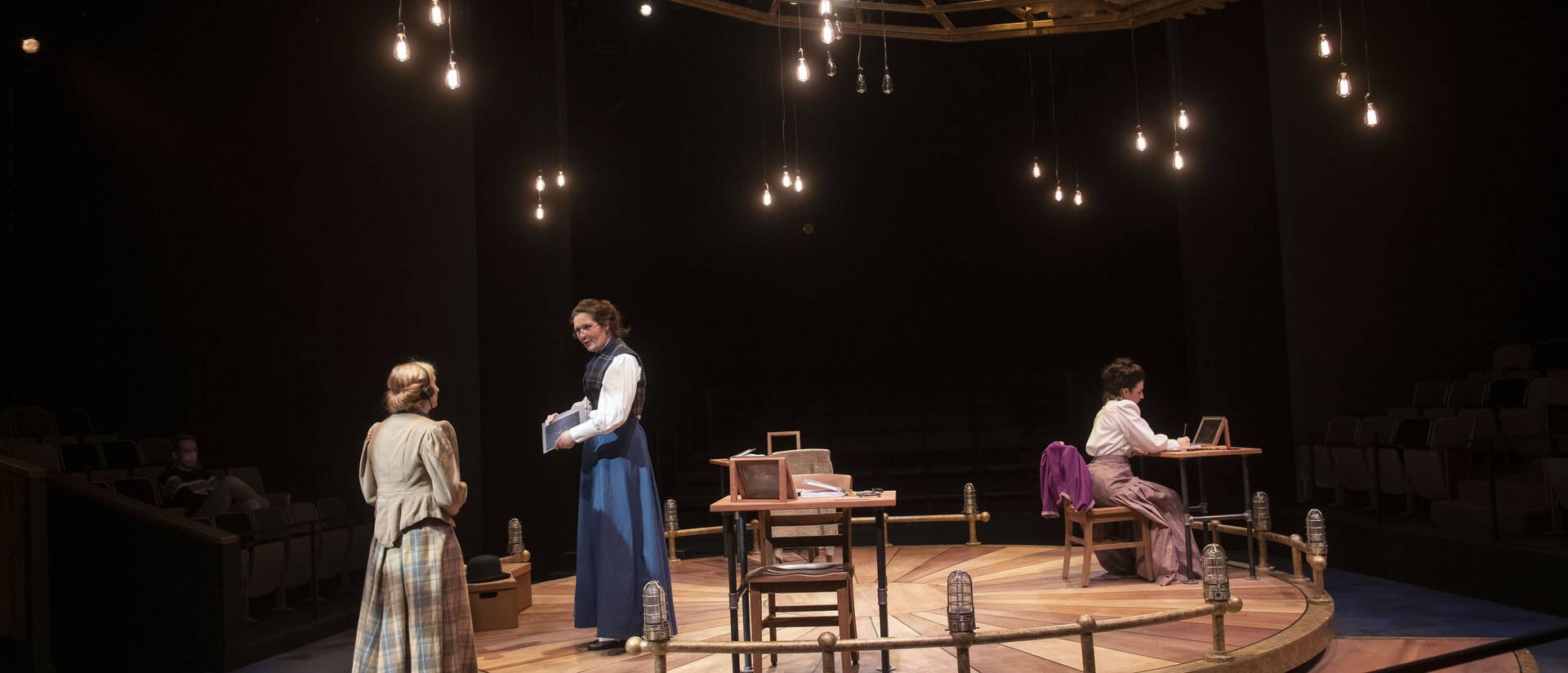The University of Wisconsin-Eau Claire begins its spring theatre season with Silent Sky. Written by Lauren Gunderson and directed by Dr. Jennifer Chapman, the play tells the story of Henrietta Leavitt, a real-life scientist who defied gender norms of her time and made groundbreaking scientific discoveries that became the foundation of other major scientific discoveries and projects today.
Henrietta Leavitt worked as a human computer at the Harvard Observatory in the early 20th century, logging discoveries of stars made by her male colleagues. During her time doing this work, Leavitt noticed patterns that allowed her to calculate the distance of a star from Earth, and distances between each other. However, due to the gender norms of the time, when she published her findings, her work wasn’t taken seriously due to societal beliefs that women did not have a place in math or science. Ultimately, her discoveries became the foundation for projects such as the Hubble telescope. Silent Sky details the struggles and challenges Henrietta faced.
Emily Szymanski, who portrays Henrietta, says of her experience in the role, “there’s a lot of responsibility to tell Henrietta’s story as accurately and honestly as possible. It’s different because when you play a [fictional] character, you can add your own little quirks to the character in a way, but Henrietta’s a very particular woman, so I really had to unpack her history and experiences to understand her, and why she reacts to some things the way she does . . . people didn’t believe her; people didn’t see the significance originally.” She also said the show is more biographical in nature than other performances she has done with the university, with some fictional elements and characters, but overall based on Henrietta’s true story.
Audiences can expect an engaging experience, with seating on all sides of the performance and the production happening in the center. Kate Konrardy, who plays Scottish immigrant and human computer Williamina Fleming, says “it’s a show based on light . . . a lot of the production centers around light and our relationship with that. Keep an eye on the lights and the light changes that are happening; it gives a lot of hints as to what’s happening in history and what’s happening in Henrietta’s mind.” The play is also written in a way that makes the topic of astronomy accessible to all ages and all audience members. Szymanski says, “going into it, they might be worried about not understanding the math behind it . . . but the playwright did a really great job of breaking down the steps of what they’re doing and having the characters explain it in a simple but constructive way. I think even kids would enjoy the show . . . they’ll be able to understand it too.”
“I want people to walk away feeling inspired, and Henrietta is definitely a very inspirational person,” Szymanski said. “I hope people come and see it; it’s a beautiful story. I’m so glad I get to be a part of telling her story.”
The play runs March 4-5 and 9-12 at 7:30pm, and March 6 and 13 at 1:30pm.
